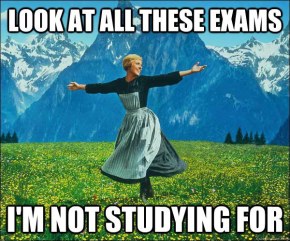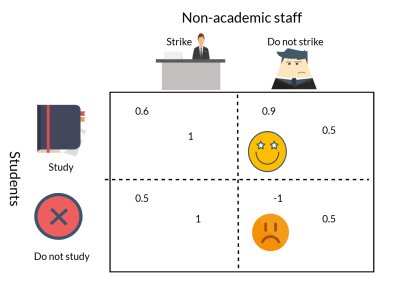I recently got hit by a bus, a bus of exams, assignments and all other mishaps that could happen in an undergraduate life. I have enjoyed my uni life so far until I figured I had to earn a way of living within the next couple of months where I start my final year as an undergraduate with a lot of books to read in the department library. Well the reason I am telling you all these is a way of apologizing for not being in touch with my blogs and also a sincere thank you goes to all my beloved readers and enthusiasts for constantly encouraging me to keep on writing.
28th of February was important for two reasons. It marked the end for final exams for most of the students and the beginning of an island-wide strike of Non-Academic staff members demanding certain rights. Knowing that there would be strike on the day of the exam the students (including myself) were very reluctant to study despite the university had not declared that the exams scheduled for 28th will be postponed. Now the students of the economics department were very “active” in spite of this incident, given the fact the paper scheduled for the 28th was very daunting. So active, that their WhatsApp group was renamed as “Non-Academic Econ Staff” due to the discussion and constant updates on the Non-academic staff of the universities for the previous 3-4 days time.
Now as responsible economics students, we could have analyzed the situation like this. Assume the university student is a rational person and the exams would not be held without the support of the non-academic staff. Now given the fact that the official announcement of cancellation of exams is to be announced on the 27th at 3pm (which is what really happened), let’s see how it influences the student.
Now if the non-academic staff carry out with the strike, and the student studies for the exam, the student would get a utility of 0.6 out of the maximum of 1 due to the satisfaction a student get from completely studying for the exam and since the staff really wants win their rights, let us assume that they get a maximum of utility of 1. Now when they do not strike on the 28th, they would get a 0.5 due to the postponing the strike. They would get half the utility based on the assumption that “today is better than tomorrow”.

So when the non-academic staff do not strike and the student studies, the person would get a 0.9 utility, (not a maximum because come-on! who likes to face a paper where the likelihood of getting a good grade never beats the odds!). When they do strike, and the student does not study, the student would get a utility of a 0.5 due to the anticipation of the “new due date” and if they do not strike the student would get a negative utility (disutility) because there won’t be enough time to prepare for the exam. Now as a rational human being, the dominant strategy from the student’s perspective is to “study” no matter what….. a clever student would have figured out the calculations and could have got an edge if the strike did not happen. What went wrong?
Well to start off with, people are irrational and students who prepare for exams prior to a month, which was actually suggested by the lecturer himself are very rare to come by. On the other hand, something that was not anticipated happened…… one of the crucial assumptions prior to speculation was broken into bits (the assumption that the exams would not happen without the help of the non-academic staff, and one of the critical arguments which came up in the group was that they were solely responsible for distributing threads to tie-up the answer sheets).
In economic theory, th
It should be mentioned that this is not an ideal situation to be analyzed through a pay-off matrix in game theory
